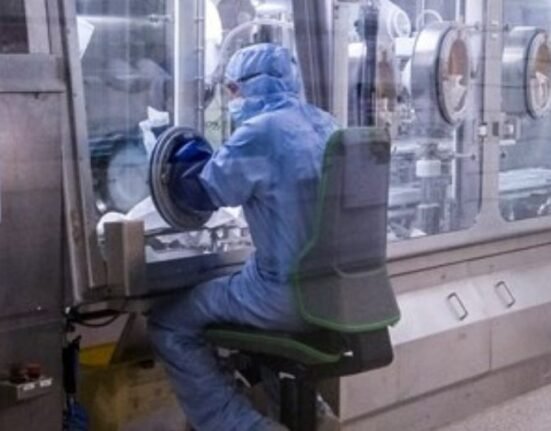HQ Team
July 25, 2024: Pfizer’s haemophilia A gene therapy has reduced bleeding rates in patients during an end-stage trial, according to a company statement.
The investigational therapy using giroctocogene fitelparvovec proved better than the standard Factor VIII replacement prophylaxis treatment which replaces the clotting protein (FVIII) on a routine basis.
Following a single dose, giroctocogene fitelparvovec demonstrated a statistically significant reduction in mean total annualized bleeding rate compared to the pre-infusion period, according to Pfizer.
The primary goal was to measure the total annualized bleeding rate, spontaneous and traumatic bleedings — treated and untreated — from 12 weeks to about 15 months following treatment with giroctocogene fitelparvovec and compare it with prior FVIII prophylaxis replacement therapy.
The study’s 75-patient pool also showed that 84% of patients who were given Pfizer’s gene therapy had Factor VIII levels above 5% at 15 months post-infusion.
Rare bleeding disorder
Haemophilia is an inherited, rare bleeding disorder that causes people to bleed for longer than normal due to a deficiency of Factor VIII or FVIII protein required for normal blood clotting in haemophilia A.
“I’m excited by the strength of these positive results from the trial that show giroctocogene fitelparvovec was generally well tolerated, and demonstrate the transformative potential of this gene therapy candidate to provide superior bleed protection compared with routine FVIII prophylaxis, while helping relieve the treatment burden for people living with haemophilia A,” said Professor Andrew Leavitt M.D., the trial’s lead investigator, Departments of Laboratory Medicine and Medicine Division of Hematology-Oncology.
“For people living with hemophilia A, the physical and emotional impact of needing to prevent and treat bleeding episodes through frequent IV infusions or injections cannot be underestimated.”
Data analyses of the end-stage study were ongoing and additional data will be presented at upcoming medical meetings, according to Pfizer.
Sangamo Therapeutics-Pfizer pact
Giroctocogene fitelparvovec was granted Fast Track and Regenerative Medicine Advanced Therapy designations from the US Food and Drug Administration, as well as Orphan Drug designations in the US and the European Union.
“Pfizer will discuss these data with regulatory authorities in the coming months.”
Giroctocogene fitelparvovec is being developed as part of a collaboration agreement for the global development and commercialization of gene therapies for hemophilia A between Sangamo Therapeutics and Pfizer.
In late 2019, Sangamo transferred the manufacturing technology and the Investigational New Drug application to Pfizer. Under the agreement, Pfizer assumed responsibility for pivotal studies, any regulatory activities, and the potential global commercialization of giroctocogene fitelparvovec.
Pfizer, in April, received FDA approval for Beqvez (fidanocogene elaparvovec), its hemophilia B gene therapy.
The therapy is also approved in Canada and is awaiting a decision from the European Medicines Agency.
Spontaneous bleeding
The severity of haemophilia is determined by the amount of Factor VIII in the blood. The lower the amount of the factor, the more likely it is that bleeding will occur which can lead to serious health problems.
Haemophilia A occurs in approximately 25 in every 100,000 male births worldwide. About 55-75% of males with haemophilia A have a moderate to severe form of the disease.
For people who live with haemophilia A, there is an increased risk of spontaneous bleeding as well as bleeding following injuries or surgery. It is a lifelong disease that requires constant monitoring and therapy.








